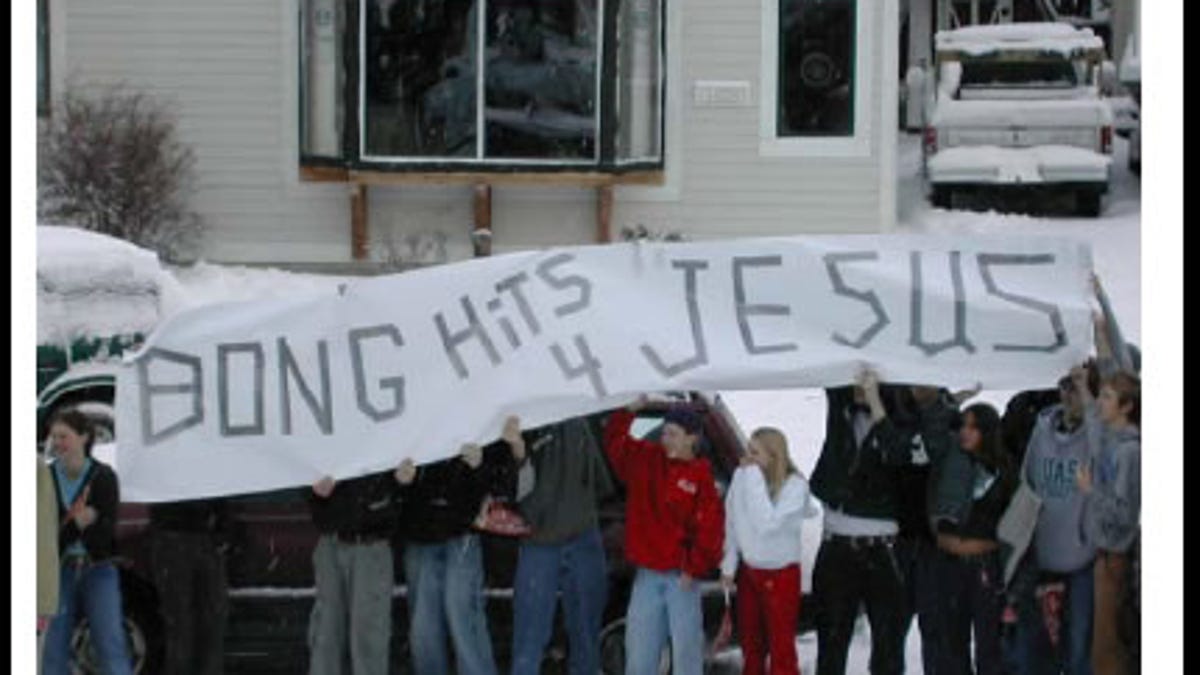Supreme Court Rules on Bong Hits For Jesus
Early today The US Supreme Court overturned a 9th circuit decision in the case of Morse v. Frederick. The so-called "Bong Hits For Jesus" case previously made headlines not only for it's unusual subject matter, but also due to Kenneth Starr's involvement

As a senior in high school in the city of Juneau, Alaska, Mr. Frederick created a large banner that read "Bong Hits For Jesus" and unveiled the banner outside his school on the sidewalk while the Olympic torch relay accompanied by television camera crews passed by on the way to the 2002 games. Upon seeing the spectacle, the principal, Deborah Morse, seized the banner and suspended Frederick for violating the school's anti-drug policy. Frederick appealed and eventually filed a lawsuit in federal court.
In 1969, Tinker v. Des Moines established that "It can hardly be argued that either students or teachers shed their constitutional rights... at the school house gate," but the Supreme Court has eroded this principle in recent years. In 1986 Bethel School District v. Fraser, was ruled in favor of the school administration and the same thing happened in 1988 with Hazelwood v. Kuhlmeier. Obviously free speech does not mean that students in public schools can sit in the back of the classroom and yell over the teacher without fear of retribution, but the resolution of the Frederick case strikes me as particularly ominous.
One of the driving principles around the lawfulness of government limitations of the First Amendment is that the exceptions carved out are dictated by the context and not the content of the speech. In this case, it does not appear that Frederick was suspended for simply making a banner. It seems that he was suspended for making a banner that could be perceived to advocate the use of marijuana, and Justice Robert's language in the majority opinion seems to indicate that the court has little reservations in regulating speech based on content, at least in the context of a public high school.
Sure it's a juvenile message. It is also true that the political aspect of the banner was likely lost in its irreverent choice of language, but the First Amendment was meant to protect all forms of speech, and I am troubled by what precedents may result from this unfortunate decision.